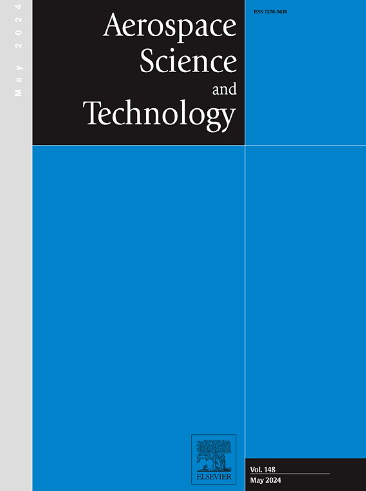PC-Transformer:基于多级预测编码的概率飞行轨迹预测
IF 5.8
1区 工程技术
Q1 ENGINEERING, AEROSPACE
引用次数: 0
摘要
可靠的飞行轨迹预测(FTP)是关键空中交通管理(ATM)应用的基础。现有的FTP方法采用确定性点估计,无法对大规模数据中的航路调整和大气湍流等多源不确定性进行建模。这一限制限制了风险感知空域决策所需的概率输出。为了解决这个问题,我们提出了预测编码变压器(PC-Transformer)。我们的方法通过一个三阶段框架将物理可解释性与高阶概率推理相结合。首先,使用经典的运动学模型生成基线预测。其次,残差编码将预测误差映射到离散索引空间,减轻了高维计算瓶颈。最后,通过多尺度路由编码器和Mamba-Attention解码器实现概率映射。这捕获了轨迹演化过程中的非高斯特征和空间拓扑语义。对来自OpenSky网络和ATC系统的ADS-B数据集的大量实验表明了几个关键发现:(1)预测编码显著增强了基线方法,产生了可解释和高度准确的预测。(2)与基线模型相比,PC-Transformer在轨迹预测精度上有了实质性的提高。它表现出特别强的长期预测性能,将平均偏差误差(MDE)降低了24% - 35%。(3) PC-Transformer在3种典型空域场景和3种典型飞行状态下,能够根据短期历史轨迹准确预测基本飞行模式。它还精确地估计未来航路点的运动状态,并输出相应的概率分布。此外,概率输出为关键的空中交通管制决策提供直接支持,与确定性基线相比,显著提高了冲突检测可靠性和时隙分配鲁棒性。本文章由计算机程序翻译,如有差异,请以英文原文为准。
PC-Transformer: Probabilistic flight trajectory prediction with multi-stage predictive coding
Reliable Flight Trajectory Prediction (FTP) is fundamental to critical Air Traffic Management (ATM) applications. Existing FTP methods that employ deterministic point estimation fail to model multi-source uncertainties such as route adjustments and atmospheric turbulence in large-scale data. This limitation restricts the probabilistic outputs needed for risk-aware airspace decisions. To address this, we propose the Predictive Coding Transformer (PC-Transformer). Our approach integrates physical interpretability with high-order probabilistic reasoning through a three-stage framework. First, baseline predictions are generated using classical kinematic models. Second, residual encoding maps prediction errors to discrete index spaces, mitigating high-dimensional computational bottlenecks. Finally, probabilistic mapping is achieved via a multi-scale routing encoder and Mamba-Attention decoder. This captures non-Gaussian features and spatial-topological semantics during trajectory evolution. Extensive experiments on ADS-B datasetsfrom the OpenSky Network and ATC systems demonstrate several key findings: (1) Predictive coding significantly enhances baseline methods, yielding interpretable and highly accurate predictions. (2) PC-Transformer achieves substantial improvements in trajectory prediction accuracy over baseline models. It exhibits particularly strong long-term prediction performance, reducing the mean deviation error (MDE) by 24 %-35 %. (3) Across three representative airspace scenarios and three typical flight states, PC-Transformer accurately predicts basic flight modes from short-term historical trajectories. It also precisely estimates future waypoint motion states and outputs their corresponding probability distributions.Furthermore, the probabilistic outputs provide direct support for critical air traffic control decisions, significantly enhancing conflict detection reliability and slot allocation robustness compared to deterministic baselines.
求助全文
通过发布文献求助,成功后即可免费获取论文全文。
去求助
来源期刊

Aerospace Science and Technology
工程技术-工程:宇航
CiteScore
10.30
自引率
28.60%
发文量
654
审稿时长
54 days
期刊介绍:
Aerospace Science and Technology publishes articles of outstanding scientific quality. Each article is reviewed by two referees. The journal welcomes papers from a wide range of countries. This journal publishes original papers, review articles and short communications related to all fields of aerospace research, fundamental and applied, potential applications of which are clearly related to:
• The design and the manufacture of aircraft, helicopters, missiles, launchers and satellites
• The control of their environment
• The study of various systems they are involved in, as supports or as targets.
Authors are invited to submit papers on new advances in the following topics to aerospace applications:
• Fluid dynamics
• Energetics and propulsion
• Materials and structures
• Flight mechanics
• Navigation, guidance and control
• Acoustics
• Optics
• Electromagnetism and radar
• Signal and image processing
• Information processing
• Data fusion
• Decision aid
• Human behaviour
• Robotics and intelligent systems
• Complex system engineering.
Etc.
 求助内容:
求助内容: 应助结果提醒方式:
应助结果提醒方式:


